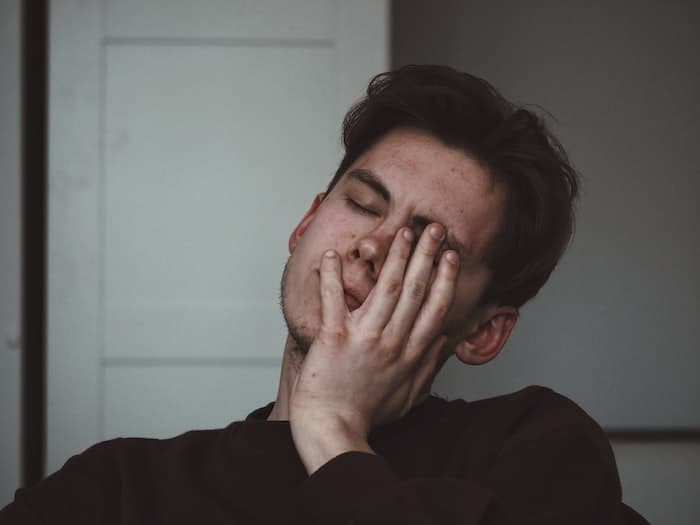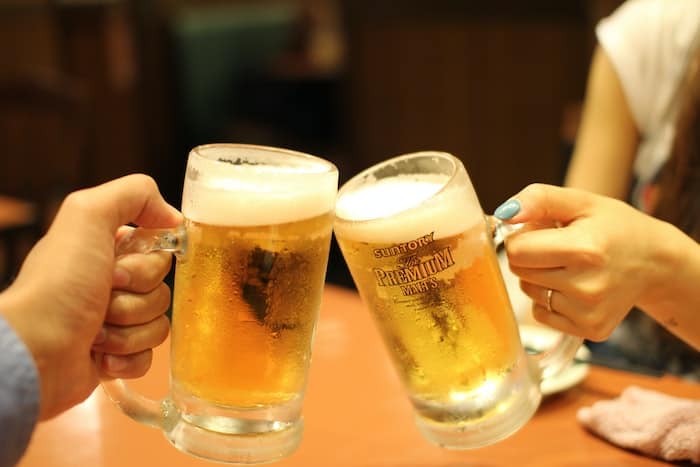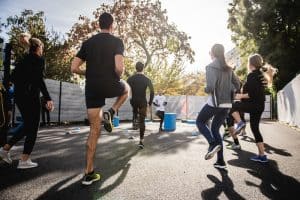If you’ve ever tried the ketogenic diet, you know that it can be a total game changer when it comes to weight loss. But what you may not know is that keto can also have some less desirable side effects, like hangovers. Yep, you read that right – keto hangovers are a real thing!

What Is a Hangover?
A hangover is a collection of unpleasant symptoms that occur after drinking too much alcohol. Symptoms may include headache, nausea, vomiting, diarrhea, lightheadedness, and fatigue.
Hangovers are caused by the dehydrating effects of alcohol and the toxins it produces. They can be prevented by drinking plenty of water before and after drinking, eating before and after drinking, and pacing oneself while drinking.
Are Alcohol Allowed on Keto Diet?
There seems to be a lot of confusion when it comes to alcohol and the keto diet. Some people believe that drinking alcohol will stop ketosis, while others think that it’s okay as long as you stick to low-carb beers. The truth is, you can drink alcohol on the keto diet as long as you stay within your daily carb limit.
One alcoholic drink is equivalent to about 12 grams of carbs, so if you’re trying to stay in ketosis, it’s best to stick to one drink per day or less. Beers are typically higher in carbs than other types of alcohol, so if you’re looking for something low-carb, drinking wine will be a better choice.
Causes of Hangovers
Hangovers are no fun. They can make you feel like death for days after a night of drinking. What’s even worse is that there is no one cure for them. You just have to wait it out. But what causes them? Here are seven possible culprits:
Electrolyte Depletion
Electrolytes are essential minerals that help keep the body’s fluids in balance, and when they’re depleted, it can lead to a range of unpleasant symptoms, including headache, nausea, and fatigue.
Alcohol consumption can cause electrolyte depletion because it increases the body’s urination and sweat production. So if you’re planning on drinking, make sure to drink plenty of fluids throughout the day to help offset any electrolyte losses. And if you do end up feeling hungover, rehydrating with sports drinks or coconut water can help relieve some of your symptoms.
Neurological Withdrawal
Alcohol is a neurotoxin, which means that it can damage nerve cells in the brain. When a person drinks alcohol, they can experience a number of short-term and long-term effects. The most common short-term effects include slurred speech, poor coordination, and altered judgment.

Acetaldehyde Exposure
Acetaldehyde is a harmful chemical that is produced when the body breaks down alcohol. It can cause nausea, vomiting, and headaches, and is thought to be responsible for the majority of the symptoms of a hangover.
Exposure to acetaldehyde can occur both during and after drinking. It is produced in the liver as alcohol is metabolized, and can also be released into the bloodstream from the stomach.
Low Blood Sugar
When alcohol is consumed, the body breaks it down into acetaldehyde and ethanol. Acetaldehyde is a toxin that can cause nausea and vomiting. Ethanol is a sedative that can cause low blood sugar.
When the body is busy breaking down alcohol, it is not able to produce enough glucose. This can lead to low blood sugar levels and symptoms such as shakiness, dizziness, and feeling lightheaded.
Sleep Disruption
Alcohol consumption can lead to increased levels of arousal and, as a result, sleep disruption. Specifically, alcohol consumption can increase the number of arousals during sleep, as well as the amount of time spent in the lighter stages of sleep.
This can lead to difficulty falling asleep and fragmented sleep. Additionally, alcohol consumption can worsen snoring and other breathing problems that occur during sleep, which can also lead to disrupted sleep.
Gastrointestinal Disturbances
Consumption of alcoholic beverages can cause a wide variety of gastrointestinal disturbances, including dyspepsia, gastritis, pancreatitis, and esophageal and stomach ulcers.
These effects are due largely to the toxic effects of alcohol on the gastrointestinal mucosa and to the fact that alcohol is a diuretic. It increases the production of urine, which can lead to dehydration and increased risk for renal failure.
Dehydration
Although dehydration is not the sole cause of hangovers, it is a major contributor. Alcohol consumption causes dehydration because it is a diuretic. A diuretic increases the production of urine, which in turn leads to dehydration.
Additionally, alcohol can irritate the stomach lining and cause vomiting, which also contributes to dehydration. So if you want to avoid a hangover, be sure to drink plenty of water before and after drinking alcohol.
How to Prevent Hangovers
Prevention and treatment of hangovers are important topics to consider, especially around the holiday season. While there is no one foolproof method for avoiding a hangover, there are some steps that can be taken to help reduce the likelihood of experiencing one. Likewise, if a hangover has already begun to take hold, there are measures that can be taken to alleviate some of the symptoms.
One of the best ways to prevent a hangover is to drink in moderation. This means pacing oneself and not drinking more than one or two drinks per hour. Additionally, it is important to drink plenty of water before and after drinking alcohol in order to stay hydrated. Eating before drinking can also help slow down the absorption of alcohol into the bloodstream.
Treatment of Hangovers
There are many theories about how to best treat a hangover. Some people swear by drinking lots of water, while others recommend sports drinks or energy drinks. Some people advocate drinking coffee or taking over-the-counter pain relievers like ibuprofen. Others say that eating something greasy is the key to feeling better. There are also a number of remedies that involve drinking alcoholic beverages, such as “hair of the dog” or Bloody Marys.
No matter what remedy you try, the most important thing is to drink plenty of fluids and take it easy until you feel better. If you have a headache, take ibuprofen or another pain reliever. If you feel sick to your stomach, drink ginger tea or eat light foods like toast or soup. And if you just feel generally awful, stay in bed and rest.
Conclusion
In conclusion, it seems that keto may not be the best diet for those prone to hangovers. The lack of carbs may make hangovers worse, as well as the dehydration that often accompanies a keto diet. While keto may have some benefits, it is important to consider how a hangover might impact your daily life before starting the diet.








